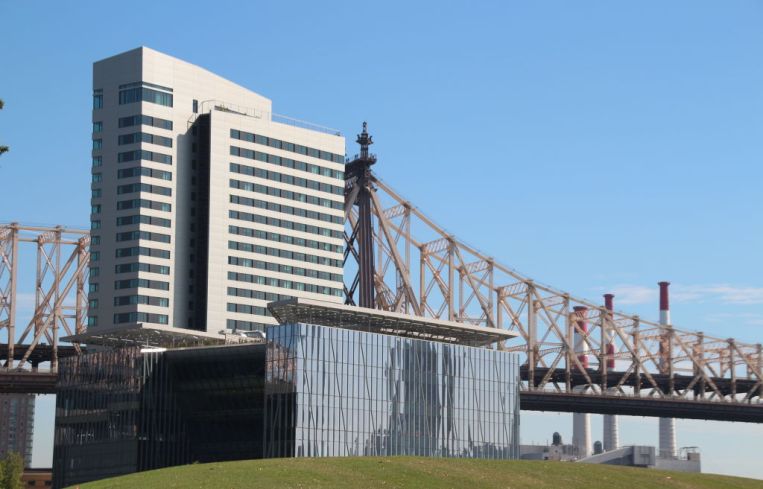NYC Unveils New Zoning Aimed at Making Energy Efficient Retrofits Easier
By Rebecca Baird-Remba April 24, 2023 3:45 pm
reprints
New York City’s Department of City Planning released a raft of new zoning changes Monday aimed at encouraging solar power, expanding parking for bikes and electric cars, and making environmentally friendly building retrofits easier.
The new rules would allow the owners of 50,000 buildings to retrofit them to comply with New York City’s Local Law 97, which requires landlords to begin reducing their energy usage in 2024. Currently, if an older building is larger than what the neighborhood’s zoning allows, it is difficult to replace the facade with a thicker, more energy-efficient option without requesting an exemption from the city.
Under the new zoning, landlords would not need special approval to add thicker facades in order to comply with the energy code, and it will give developers of new, all-electric buildings a 5 percent boost in floor area so they can use tighter, energy-efficient facades and windows.
“It’s our effort to modernize our 20th century zoning resolution,” said Dan Garodnick, the director of the City Planning Department and chair of New York’s Planning Commission. “Many of our resolutions were crafted well before the climate crisis was in full swing, and we need to take action to ensure New York City remains a leader.
“We have some of the most ambitious climate commitments in the world,” Garodnick added. “It’s obvious that our zoning resolution has not kept up with our need to adapt for the climate crisis, and through a variety of limitations that we have identified, the city is acting as a hindrance and not a help to get us to where we need to be.”
The updated zoning — known as the “City of Yes for Carbon Neutrality” — would also give building owners an extra 15 to 55 feet in height for new mechanical systems, including heat pumps and cooling towers necessary for modern electric HVAC systems. Other updates include allowing large, building-level backup batteries as-of-right (rather than forcing owners to go through a special permit process), permitting additional height for rooftop solar installations, and creating a new category for large solar installations in parking lots and residential areas.
Garodnick noted that the latter proposal would open up opportunities to add solar panels in 8,500 parking lots across the city, which could power up to 130,000 homes.
The city is also pushing greener forms of transit. The zoning change would enable public garage owners to convert all of their parking spots to electric vehicle charging and up to 50 percent of their spots to car share, car rental and commercial vehicle storage. The change will also legalize outdoor secure bike storage.
Smaller changes include allowing rooftop greenhouses as-of-right, more flexible rules around installing street trees and rain gardens, and permitting small composting operations in residential and commercial areas. Currently, zoning allows recycling and composing only in heavy manufacturing areas.
The new zoning changes wasn’t the only environmental announcement the city made on Monday. Mayor Eric Adams also tapped Stony Brook University to build a $700 million campus for the research and development of climate solutions on Governors Island.
The City Planning Commission kicked off the public review for the new zoning updates on Monday. All of the city’s community boards and borough presidents will have 60 days to consider the rules before they head back to the New York City Council for a vote. The council is expected to vote on the updated green zoning in the fall.
“Today, New York City is saying ‘yes’ to a cleaner, greener, more prosperous future for generations to come,” Adams said in a statement. “This proposal will make it easier to tackle climate change in the places we go, how we get there, and what we do. The climate crisis is urgent, and I look forward to talking to New Yorkers about how we can remove barriers, take action, and ensure a healthy future for our neighborhoods, our city, and our planet.”
Rebecca Baird-Remba can be reached at rbairdremba@commercialobserver.com.



